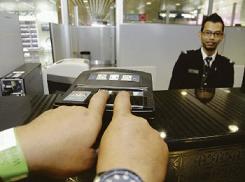 The New Straits Times
The New Straits Times by Santha Oorjitham
PUTRAJAYA:
The Home Ministry hopes the bilateral refugee deal will be signed this
month, says its deputy secretary-general (Registration and Immigration)
Datuk Raja Azahar Raja Abdul Manap.
His colleagues and their Australian counterparts are negotiating the final details in the memorandum of understanding.
Last night, the Australian Broadcasting Corporation's Lateline claimed to have obtained a draft containing Malaysia's proposed amendments.
It stated that Malaysia wanted "veto power" over the 800 boat people who would be transferred to the country, claimed the ABC reporter.
A refugee advocate also commented that unaccompanied child asylum seekers "risk being sent to the brutality of Malaysian detention camps".
His colleagues and their Australian counterparts are negotiating the final details in the memorandum of understanding.
Last night, the Australian Broadcasting Corporation's Lateline claimed to have obtained a draft containing Malaysia's proposed amendments.
It stated that Malaysia wanted "veto power" over the 800 boat people who would be transferred to the country, claimed the ABC reporter.
A refugee advocate also commented that unaccompanied child asylum seekers "risk being sent to the brutality of Malaysian detention camps".
The ABC quoted United Nations High Commissioner for Refugees (UNHCR) regional representative Richard Towle as calling for the deal to be "judged on its final terms, not according to one piece of a part of a negotiation that has been going on for some months".
Towle said there were some "bottom-line core principles" the UNHCR expected to see and "there have been some pretty positive indications that they'll be in the agreement".
So, what could be in store for the 800?
"Australia will do basic testing before anyone is transferred," its Immigration Minister, Chris Bowen, told the New Straits Times in reply to emailed questions.
Australia would determine "whether they are medically fit to travel and are not a threat to national security, and then send them to us", said Raja Azahar.
"If they are on criminal or terrorist blacklists, we don't want them."
He added that upon arrival, the asylum seekers would stay in a transit centre.
"For the first few weeks, we will screen them thoroughly by checking on medical and security aspects."
Australia was looking into both existing facilities that they could upgrade, or rent or build a new centre at their cost, said the deputy secretary-general.
After that, they would be released but he noted "we want to track them while they are here".
Like all foreigners entering the country this month, they would undergo biometric fingerprint scanning and their contact information (address, phone number, etc.) would be recorded.
"Asylum-seeker assessments will be undertaken in Malaysia with support from Australia and the UNHCR," said Bowen.
It takes UNHCR between one and two years to process claims, depending whether the asylum seeker appeals a decision.
If the UNHCR categorised them as refugees, the Malaysian authorities would register them and they would wait for resettlement in a third country.
Most of the refugees here were resettled in the United States.
But if they were not classified as refugees and not in danger of persecution in their home country, they would be sent back "with the International Organisation for Migration (IOM) assisting in finance and logistics", said Raja Azahar.
He estimated that most of the processing would be handled by UNHCR and IOM, which was "about 80 per cent of the responsibility but the Immigration Department, health and airport officials would also be involved because they landed here".
The Home Ministry, the Foreign Affairs Ministry, the National Security Council and the Attorney-General's Chambers will be the main stakeholders in the refugee swap deal.

No comments:
Post a Comment